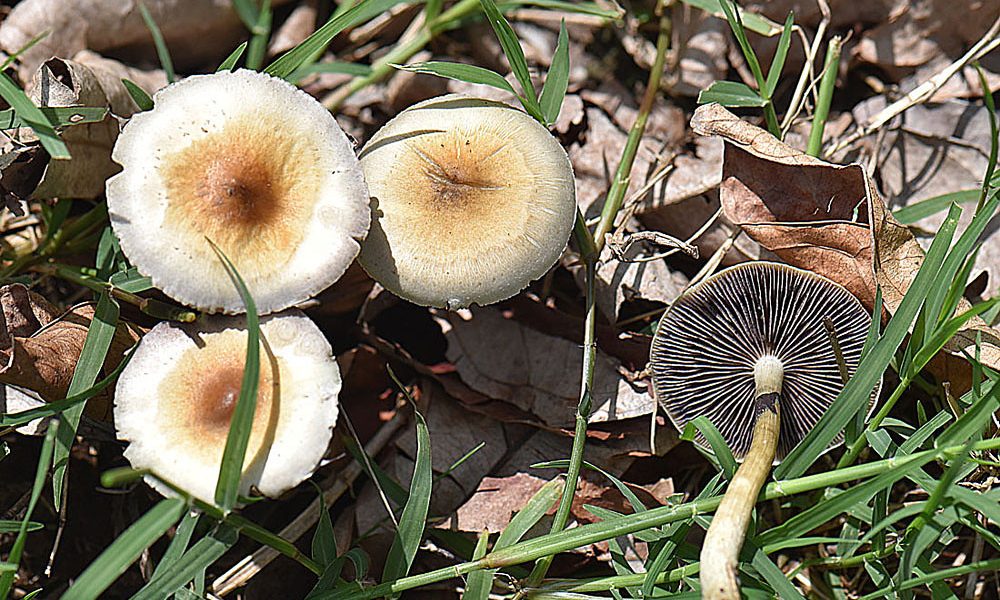A Virginia Senate bill to establish a statewide psilocybin advisory board and move the psychedelic to a lower schedule under state statute is headed to the floor following its approval in committee.
The Senate Education and Health Committee passed the legislation from Sen. Ghazala Hashmi (D) in a 14-1 vote on Thursday—about a week after it advanced out of a subcommittee.
The measure now heads to the full Senate for consideration, but time is running thin in the short session, with a crossover deadline on Tuesday for bills to clear their originating chamber.
Advocates are encouraged to see psychedelics reform move in the legislature, especially after a separate Virginia House of Delegates panel recently rejected a measure to legalize psilocybin for therapeutic use for people with serious conditions who obtain a doctor’s recommendation.
Hashmi’s legislation is more narrowly tailored than a proposal she filed last session to decriminalize psilocybin altogether. Instead, it would reclassify psilocybin from Schedule I to Schedule III under state law and establish a Virginia Psilocybin Advisory Board.
The board that’s being proposed would be required to “develop a long-term strategic plan for establishing therapeutic access to psilocybin services and monitor and study federal laws, regulations, and policies regarding psilocybin,” the bill text states.
The governor would be responsible for appointing 12 members to the board, including public health and safety officials, an addiction medicine specialist, a psychologist, a physicians specializing in post-traumatic stress disorder (PTSD), a clinical researcher, a mycologist and more.
While it wouldn’t allow legal therapeutic use of psilocybin, the bill states that the advisory board would be tasked with analyzing “scientific studies and research on the safety and efficacy of psilocybin in treating mental health conditions and on the requirements, specifications, and guidelines for providing psilocybin services in Virginia.”
Members would need to submit a report on its findings to the governor and legislature by December 1 of each year.
If enacted, the measure would amend state statute to place psilocybin in Schedule III. Possession of substances in that schedule is considered a Class 1 misdemeanor punishable by a maximum one year in prison and a fine of up to $2,500.
Possession a Schedule I drug, where psilocybin is currently listed, is a Class 5 felony that carries up to 10 years in prison and up to a $2,500 fine.
Del. Dawn Adams (D), who sponsored the separate committee-defeated therapeutic psilocybin bill this session, told Marijuana Moment last month that she felt the Senate advisory board legislation stood a stronger chance of passing. However, she worried that it would give legislators an excuse to delay action on more comprehensive reform for the psychedelic.
—
Marijuana Moment is tracking hundreds of cannabis, psychedelics and drug policy bills in state legislatures and Congress this year. Patreon supporters pledging at least $25/month get access to our interactive maps, charts and hearing calendar so they don’t miss any developments.![]()
Learn more about our marijuana bill tracker and become a supporter on Patreon to get access.
—
Meanwhile, Virginia senators recently advanced bills to start adult-use marijuana sales and allow cannabis businesses to make certain tax deductions at the state level while they’re barred from doing so federally under the Internal Revenue Services (IRS) code known as 280E.
It’s unclear if the Republican-controlled House might be willing to go along with the commerce proposal if it ultimately clears the full Senate, which remains under Democratic control. GOP lawmakers have filed several bills meant to create a framework for regulated sales in recent weeks, but those have stalled in committee.
With respect to psychedelics, Virginia is just one of numerous states where reform is being pursued in the 2023 session so far.
More than a dozen state legislatures have seen psychedelics proposals introduced in the first weeks of 2023 as the local decriminalization movement expands, bringing in legislators from diverse political backgrounds.
Most recently, psychedelics legislation has been introduced in Hawaii, New Hampshire, New York and West Virginia. A Utah lawmaker has also discussed plans to file a psilocybin bill this session.
Legislators in Connecticut, Massachusetts and Oklahoma also recently filed bills to revise laws governing entheogenic plants and fungi.
Meanwhile, a Republican Missouri lawmaker has filed a bill that would provide therapeutic access to psilocybin for people with serious mental health conditions.
New York Assemblymember Linda Rosenthal (D) pre-filed legislation in late December to legalize certain psychedelics like psilocybin and ibogaine for adults 21 and older. Gov. Kathy Hochul (D) also recently signed a bill mandating that the state immediately reschedule or deschedule Schedule I drugs like MDMA and psilocybin if they’re reclassified under federal law.
Bipartisan Washington State senators also recently unveiled a revised bill to legalize psilocybin services for adults.
There are also psychedelics reform efforts underway in Arizona, California, Colorado, Illinois, Minnesota, Montana, New Jersey and Oregon.
Oregon voters approved a historic ballot initiative to legalize psilocybin for therapeutic use in 2020, and Colorado voters passed a broad psychedelics legalization and psilocybin services measure during the November election.
An analysis published in an American Medical Association journal in December concluded that a majority of states will legalize psychedelics by 2037, based on statistical modeling of policy trends.
Oklahoma Could Generate Nearly Half A Billion In Marijuana Tax Dollars Over Five Years If Voters Approve Legalization Next Month, Analysis Shows
Photo courtesy of Dick Culbert.
Read the full article here

